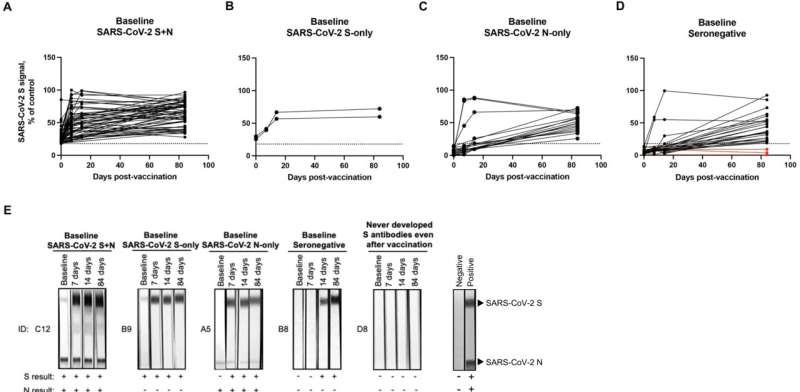This article has been reviewed according to Science X's editorial process and policies. Editors have highlighted the following attributes while ensuring the content's credibility:
fact-checked
trusted source
proofread
New research provides insight Into COVID-19 immunity

Exposure to common cold-causing coronaviruses may contribute to pre-existing immunity to COVID-19, according to a new study involving a Rutgers research scientist.
The study, published in the Journal of Clinical Virology Plus, examined the immune responses in two categories of individuals in Lagos, Nigeria: health care workers in a teaching hospital and members of the general population residing in five localities.
"Of the 83% of individuals in our study who had common cold coronavirus exposure, we found that their T cells cross-reacted to SARS-CoV-2, hinting at the fact that people who have been exposed to these genetically related coronaviruses have immune responses that may be protecting them from future SARS-CoV-2 infections," said Bobby Brooke Herrera, an assistant professor of global health at Rutgers Global Health Institute and a lead author of the study along with Sulaimon Akanmu of Lagos University Teaching Hospital in Nigeria.
The researchers' findings provide insights about factors that may influence global infectious disease outbreak preparedness and responses, such as vaccine development. Herrera leads a research laboratory that is studying the intricacies of humans' immune responses to microbial pathogens, especially viruses, that cause lethal human disease and for which there are limited options for treatment or vaccination.
Topics addressed in the study include:
- Associations between immunity and the Africa paradox of high SARS-CoV-2 infection with low mortality
- High SARS-CoV-2 seroprevalence in Lagos health care workers and in the community, indicating potentially greater infection rates than reported
- Laboratory techniques to examine characteristics of pre-existing coronavirus immunity, such as antibodies directed against only the more conserved SARS-CoV-2 nucleocapsid protein as compared to antibodies against both the SARS-CoV-2 nucleocapsid and spike proteins
- Dynamics associated with prior SARS-CoV-2 infection and a boosted antibody response to the AstraZeneca COVID-19 vaccine
- Detecting viral exposure by examining T cell responses against SARS-CoV-2 nucleocapsid protein using a novel whole blood test

The results of this study are unique because data was collected at a critical period during the pandemic. Researchers looked at antibody and T cell immune responses of people before and after they were vaccinated. Most people have been exposed to SARS-CoV-2 antigens by either infection or vaccination, Herrera said.
"This type of baseline data is now difficult to achieve," he said. "However, there are still a lot of unknowns related to COVID-19, and the more we can understand, the better equipped we are to develop improved diagnostics and vaccines for this disease and other infectious diseases."
Herrera's leadership of this study is an outgrowth of research he was involved with during his time as a visiting scientist at Harvard University in the laboratory of virologist Phyllis J. Kanki, a professor of health sciences at Harvard's public health school and the study's senior author.
Herrera is continuing to collaborate with Akanmu, Kanki and others to home in on the mechanisms by which antibodies and T cells may offer protection against future infections by SARS-CoV-2, including its variants. He also is developing T cell-based vaccines.
"I am going to be testing whether the T cell-based vaccines we have developed in my lab and in collaboration with my biotechnology company can protect against multiple SARS-CoV-2 variants as well as some of the genetically similar coronaviruses," said Herrera, who is also an assistant professor at Rutgers Robert Wood Johnson Medical School and a co-founder of the company Mir Biosciences.
"We're trying to understand if T cell-based vaccines truly cross-protect," he said. "We know that they can cross-recognize other coronaviruses, but not whether cross-recognition actually means cross-protection. If it does, that potentially leads to a novel strategy for coronavirus vaccine development."
More information: Sulaimon Akanmu et al, High SARS-CoV-2 seroprevalence in Lagos, Nigeria with robust antibody and cellular immune responses, Journal of Clinical Virology Plus (2023). DOI: 10.1016/j.jcvp.2023.100156



















